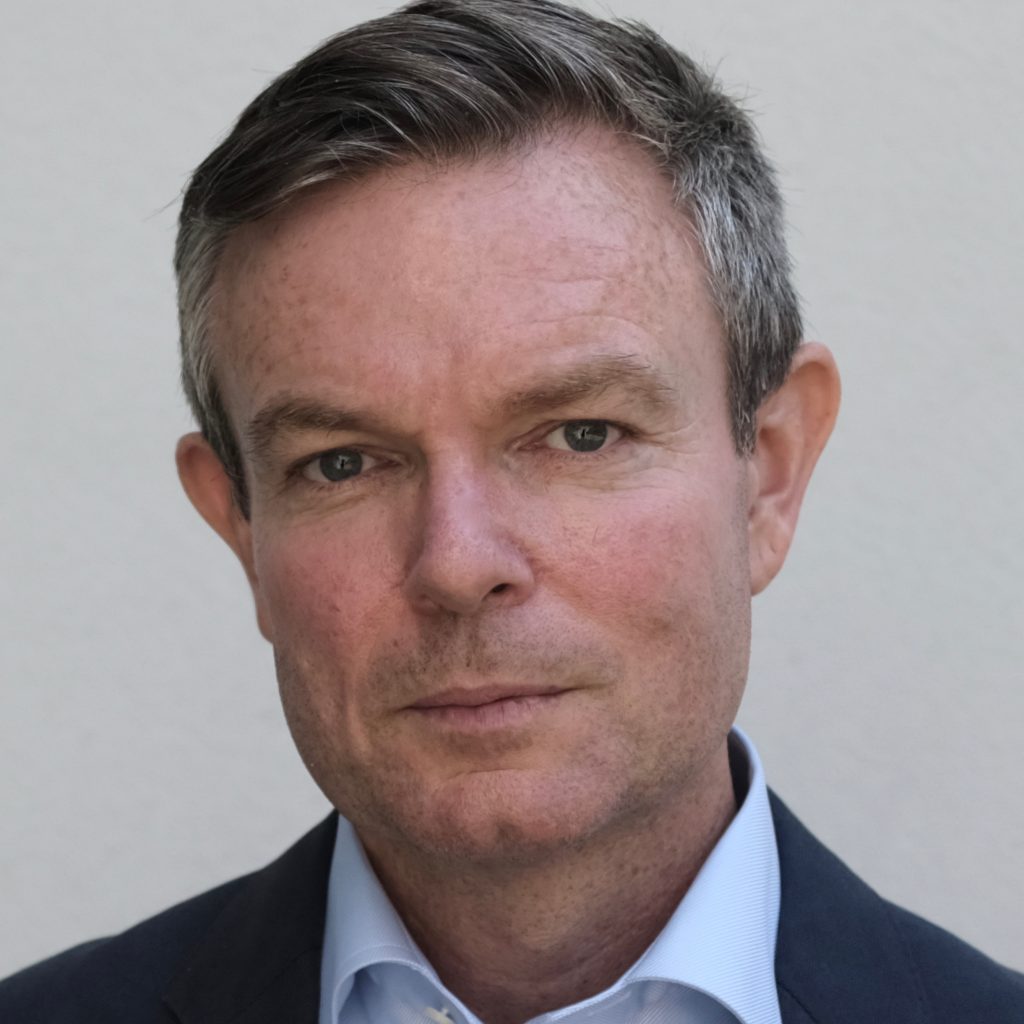Kent Law School Senior Lecturer Dr Gavin Sullivan has been awarded a highly competitive and prestigious £1.2 million UK Research and Innovation (UKRI) Future Leaders Fellowship, one of the few awarded by UKRI to a legal scholar.
The Future Leaders Fellowships scheme nurture early career researchers with outstanding potential, enabling them to tackle ambitious and novel challenges.
Dr Sullivan’s fellowship – ‘Infra-Legalities: Global Security Infrastructures, Artificial Intelligence and International Law’ – allows him to lead an interdisciplinary team to examine how AI security, and the data infrastructures that sustain it, are reshaping global security law, rights and accountability and security decision-making. The project will focus on the use of AI in controlling the movements of ‘risky’ people and in countering terrorism and extremism online. It will run from 2021 – 2028.
Dr Sullivan said: ‘I am honoured to receive this UKRI award. States, international organisations and private platforms are extracting and exchanging vast amounts of data for identifying risky people, using globally-interconnected data systems and AI to do so. Understanding how law, knowledge, power, agency and rights are being transformed in this process is crucial in grappling with the urgent legal and political challenges that algorithmic decision-making in the security field is posing’.
Dr Sullivan will be collaborating with an interdisciplinary team of world-leading scholars in international law, anthropology, socio-legal studies, computer science and security studies. Project partners include the American Civil Liberties Union (ACLU), the Home Office, Ada Lovelace Institute, Royal United Services Institute (RUSI), Fair Trials International and the UN’s leading AI research institute (UNICRI). Building on his work as a lawyer helping people on security lists exercise their due process rights, Dr Sullivan will also work closely with people flagged as ‘risky’ and with lawyers and experts from the AWO data rights agency to map the systems that profiled persons are entangled in.
Dr Sullivan said: ‘My research engages people building and being targeted by security infrastructures – including those denied travel because they are deemed ‘risky’ or whose online expression is algorithmically flagged and removed to reduce the risk of online harm. How can people profiled as a potential threat challenge decisions made via AI? Can human rights be designed into AI-systems or must they be redesigned for the algorithmic decision-making era? My fellowship will create knowledge to address these questions and inform global policy debates on these issues in ways that put the experiences of those most affected by AI-led security front-centre of analysis’.
Professor Karen Yeung – Interdisciplinary Professorial Fellow in Law, Ethics and Informatics at the University of Birmingham and leading algorithmic regulation scholar – will join the fellowship as co-investigator in 2023. She said: ‘I am really delighted to be involved in this ambitious and important project, which could not be more timely. As automated decision-making systems, powered by AI, become increasingly commonplace to determine the status and opportunities or ‘risks’ posed by individuals, the need to ensure these systems are subject to meaningful oversight and accountability is even more urgent.’
Dr Dimitri Van Den Meerssche – an interdisciplinary legal scholar working on international law, AI and border governance technologies – will be joining the Infra-Legalities project as a postdoctoral Research Fellow from 2021 – 2024. He said: ‘I am very enthusiastic to become part of this innovative project and to work with Gavin on empirically exploring the ways in which new technical infrastructures are rewriting global security governance’.
Dr Sullivan is an expert in global counterterrorism law. His book The Law of the List: UN Counterterrorism Sanctions and the Politics of Global Security Law was published by Cambridge University Press earlier this year as part of their Global Law series. His research focuses on the politics of global security law and global data infrastructures. It has been published in journals such as Transnational Legal Theory, the Leiden Journal of International Law, the American Journal of International Law and Environment and Planning D: Society and Space and supported by the British Academy. He coordinates the Transnational Listing Project – a global law clinic that provides pro bono representation to people targeted by security lists and databases worldwide.
Dr Sullivan teaches modules in Public Law, and Global Security Law at Kent Law School.
A total of 101 Future Leaders Fellowships were announced today. The scheme, which will recognise up to 550 individuals with a total investment of £900 million committed over three years, helps universities and businesses in the UK recruit, develop and retain the world’s best researchers and innovators, regardless of their background. They can apply for up to £1.5 million to support the research and innovation leaders of the future, keeping the UK at the cutting edge of innovation.
See also on UKRI’s website: First Future Leaders Fellowships give the freedom to deliver global impact

